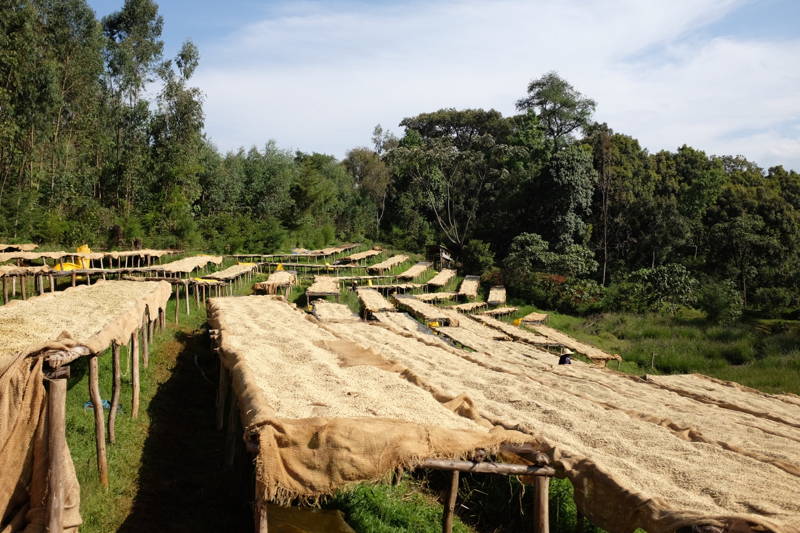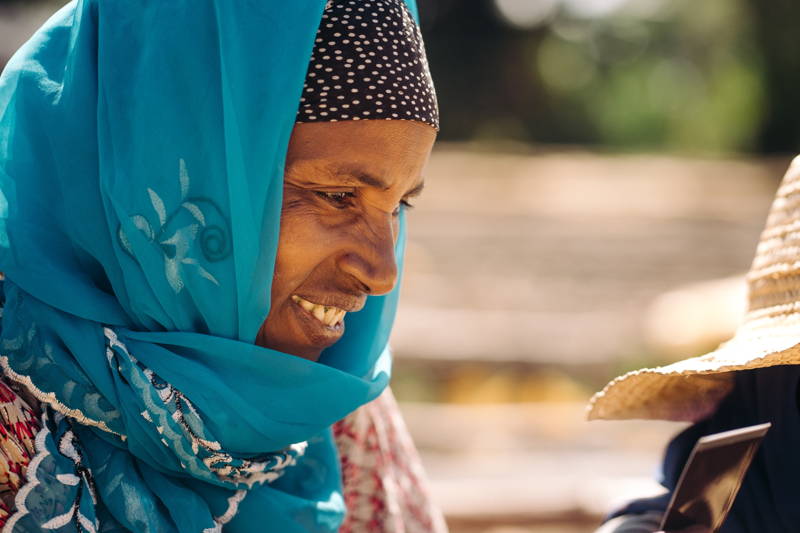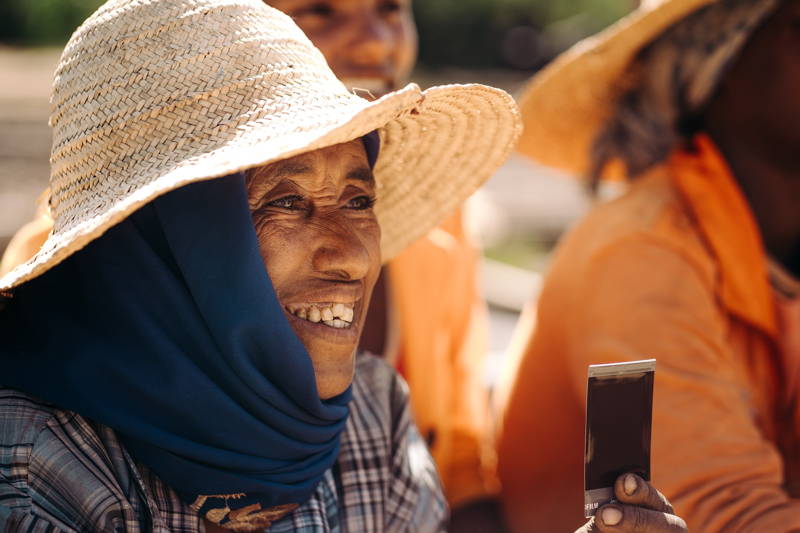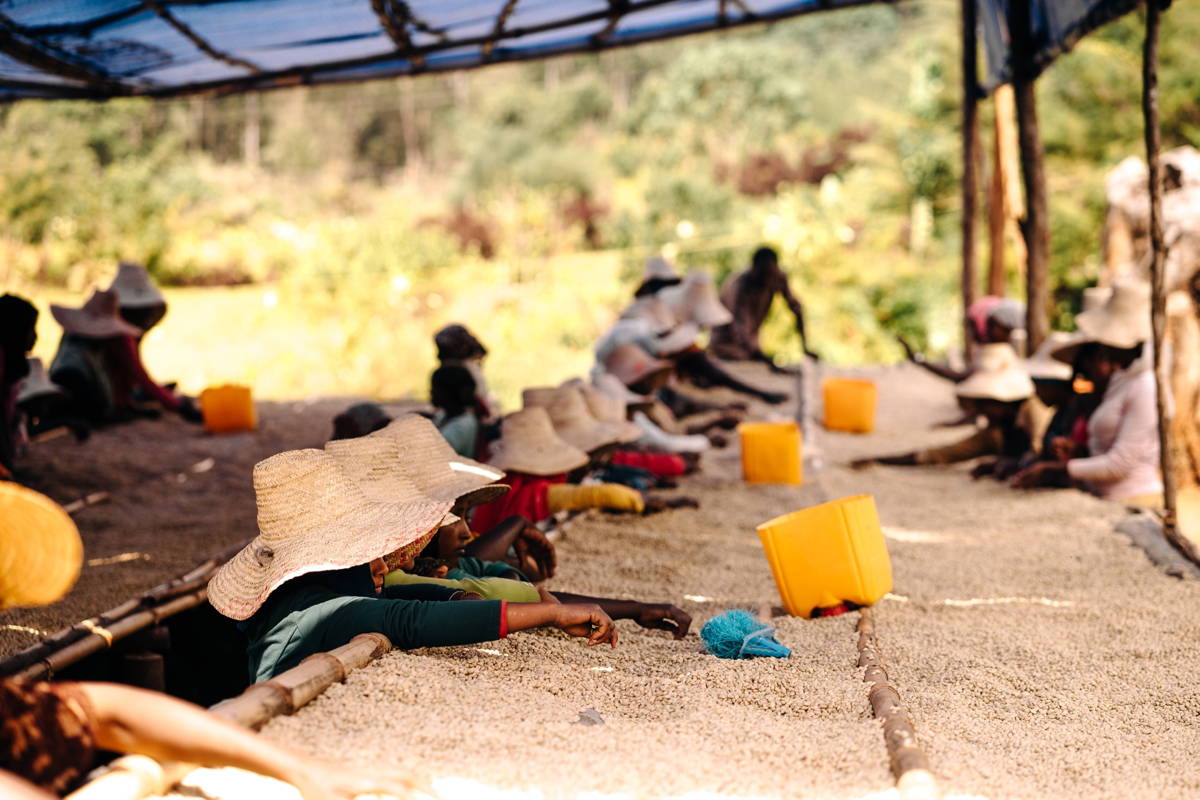
Bio certification for 3 cooperatives in Jimma, Ethiopia
In summer 2013, we were able to implement our organic certification project in Ilketunjo together with the state-approved german control body BCS Öko-Garantie. It is true that the coffees of our partner cooperatives have always been grown organically, as the farmers completely avoid the use of pesticides and herbicides. We thought that the small producers could benefit from higher sales revenues per kilo through an official certification.
Not every project was marked by success. The organic certification of the three cooperatives Ilketunjo, Doyo and Alaga Sekala was an instructive undertaking. The plan was simple: through the official organic certification of the EU, the farmers could receive a premium for every kilo of coffee sold. If successful, the cooperatives would then take it into their own hands to renew the certification after the first harvest. But this never became reality. The success was short-lived. What happened?
At a glance
- Project volume: 16.984 €
- Implementation period: 2012-2014
- Region: Ilketunjo, Doyo, Alaga Sekala in Jimma, Ethiopia
- Cooperatives: Ilketunjo, Doyo, Alaga Sekala
- Coffee: Limu
- beneficiaries: ca. 10.808 people (incl. affected households)
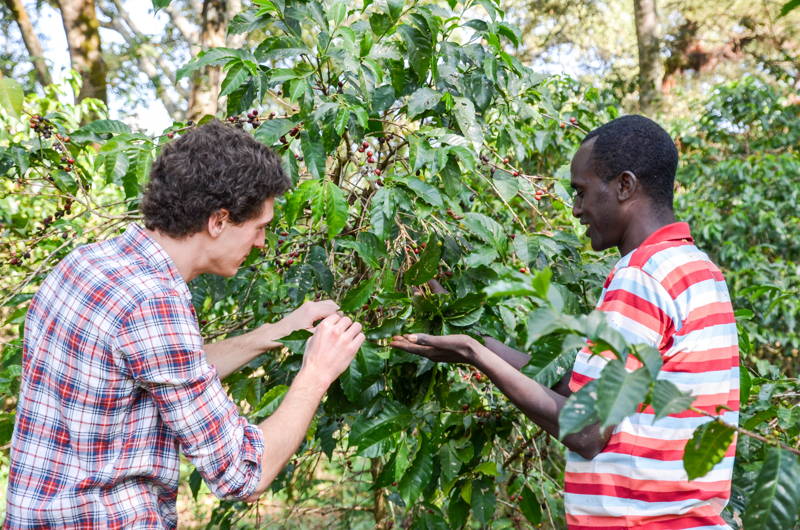
Why was this project so important?
Since the founding of Coffee Circle, one of our major objectives has been to enable farmers in the countries of origin to generate higher income for their coffee and thus increase wages for themselves and their harvest workers. This can be done in different ways: by increasing quality, for example, with the help of training, education or cupping labs, as we have supported them in the D.R. Congo with your donations. In the early years of Coffee Circle, organic certification seemed to make sense for cooperatives as an additional way to increase yields and wages for farmers. After all, potential buyers are willing to pay a higher price for coffee if the cooperatives‘ coffee is officially certified organic. However, the implementation and development of this project was sobering and an important lesson.
How was this project implemented?
For Coffee Circle, the result was rather modest.
As indicated, there are several reasons to apply for an EU organic certificate. On the one hand, cooperatives are encouraged to continue growing organically, and on the other hand, higher revenues can be generated. The first reason was not decisive here, because the cooperatives in Ethiopia grow coffee without the use of pesticides and herbicides. There are no monocultures in the regions, but there is a high level of biodiversity, which makes the chemicals superfluous. If a cooperative does decide to use the pesticides, they are usually unavailable or too expensive in Ethiopia. The prospect of higher revenues led ‚the cooperatives to decide to apply for the organic label. In this endeavor we supported them, thanks to your donations paying the €3,000 per certification for each cooperative (a total of €9,000 per year).
Of course, this meant that we, as customers, also had to pay a premium for the organic seal. Our great hope was that other roasters would also be willing to pay a premium in order to purchase and thus offer the cooperative’s beans as a certified organic product. For Coffee Circle co-founder and CEO Martin Elwert, the result was sobering.
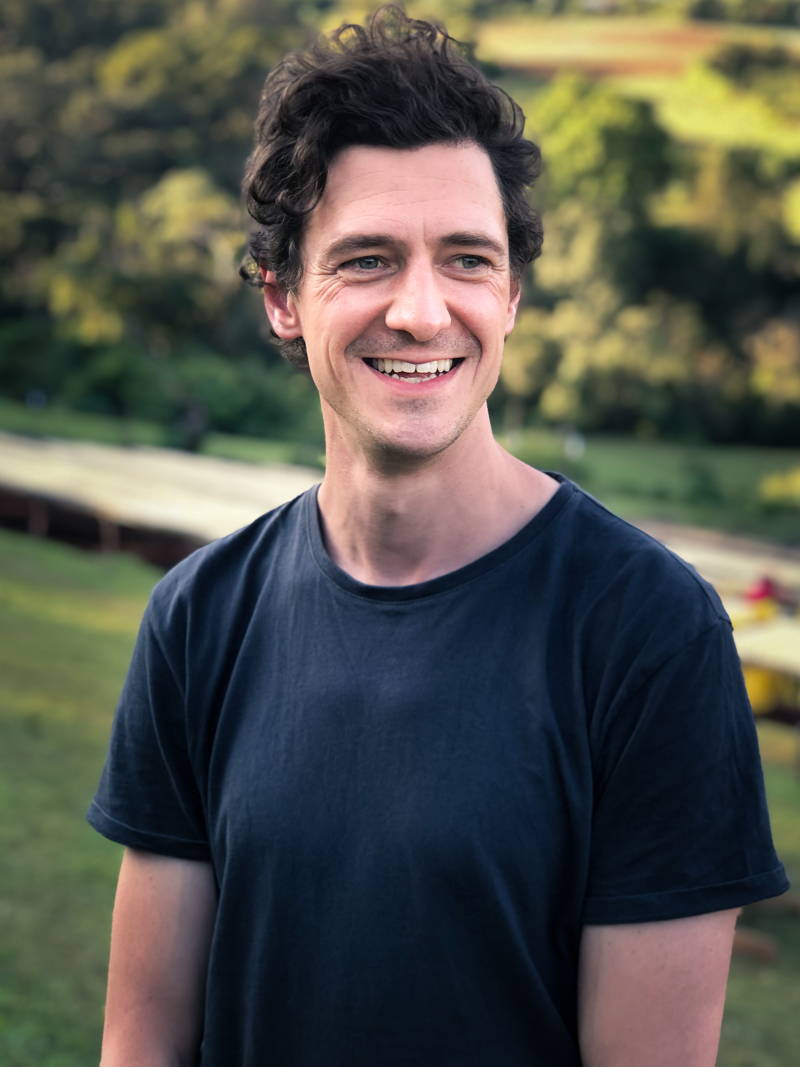
Stephan Eicke: Martin, where was the error?
Martin Elwert: Our hope, of course, was that we would not be the only customers buying certified organic coffee, but that other roasters would as well. That was not the case. Something that is often forgotten when talking about certifications: Which U.S. roasters are interested in the EU organic seal? American roasters need the American organic seal. Japanese or Korean roasters are not interested in the EU label either.
Not all organic labels are the same?
No, it’s similar to the Fair Trade seal. There are dozens of seals for the different countries. If a cooperative is to be truly „certified,“ it would need a dozen seals. In Colombia, for example, there are even certificates for „kosher“ and „bird friendly“. The initial EU certification for one cooperative alone cost 3,000 euros. We paid for this because we hoped that the additional income for the farmers would make it worthwhile. But this additional income never came, because no one but us was willing to pay this extra price because of the EU seal. You can only sell your coffee with the organic label if you find a buyer who is willing to pay this extra price. You can buy the same organic coffee, but without the seal. As a buyer:in you only pay for the label.
As a roaster and seller, we have decided against the Fair Trade system and in favor of Direct Trade. With the organic seal it is very similar: Only by working directly with cooperatives and farmers we can ensure that the coffee has been grown organically and that those involved are compensated appropriately – far above the world market price. A seal cannot provide this guarantee, because traceability is often not possible despite all the guarantees, as Martin Elwert and his colleagues found out during several visits to Ethiopia. After all, the Ethiopian saying „You never know how coffee travels overnight“ is no coincidence: occasionally, truckloads of coffee are unloaded at Washing Stations at night, and their traceability cannot be guaranteed. „We learned something else shocking,“ Martin Elwert continues, „In March, I approached the organic certifier in Ethiopia, the offshoot of a German certification company. I wanted to get a quote for the certification of the upcoming harvest. Due to a misunderstanding, I was then offered all certificates for the already past harvest at a flat rate.“
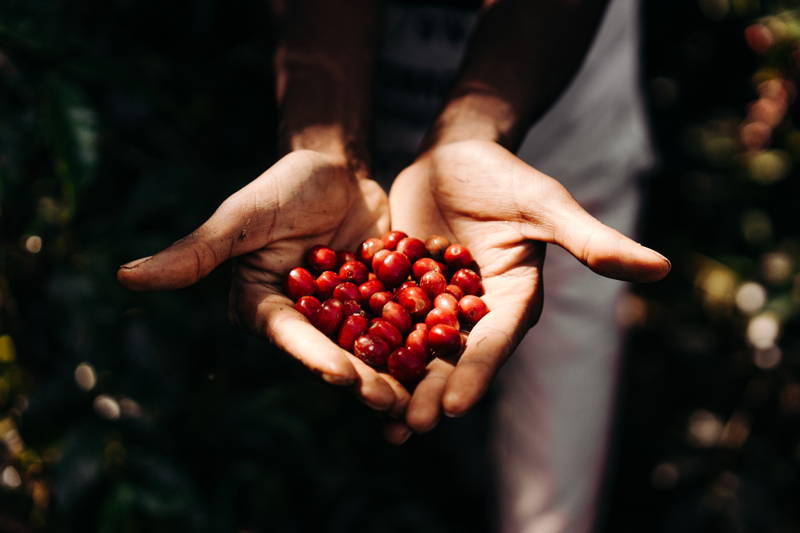
Our coffees from Ethiopia
What has changed?
We paid for an extension of the organic seal before the cooperatives decided not to continue the certification due to the lack of success. However, depending on the country, organic certification is not inherently bad. Especially for roasters who cannot be on site or do not handle their purchases in direct contact with cooperatives, the EU organic label can provide an additional control authority by having representatives of the certification body travel to the cooperatives and ensure that the requirements are followed.
We have found other ways to help cooperatives and farmers increase profits and wages. In D.R. Congo, we have set up a cupping lab with the NGO Rikolto and the cooperative Kawa Kabuya, which enables farmers to assess and improve the quality of their own coffee. In this way, coffees with a higher quality level can be sold for a better price and the entire cooperative increases its income.
Similarly, in Kenya, in cooperation with the Thiririka cooperative and the NGO TFM, we have involved several agronomists who provide long-term support to farmers. In the area of infrastructure improvement, the managers of the washing stations were trained to improve the quality of their coffee. The Ndundu and Kiganjo stations were tiled, as were the ten fermentation tanks. Twenty drying stations were built for Ndundu, and as many as 30 for Kiganjo. Measures such as these have proven to be more efficient than applying for organic labels alone.
A report by Stephan Eicke
